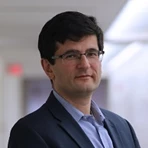Around 250 million migrants currently live outside their countries of birth, making up approximately 3.5 percent of the world population. Despite the widespread perception of a global migration crisis, this ratio has stayed remarkably stable since the end of the Second World War and lags well behind other major metrics of globalization – international trade, capital flows, tourism etc. A more remarkable statistic is that refugees, at around 15 million, account for 6 percent of the migrant population and only 0.2 percent of world population. In other words, we can fit all refugees in the world in a city with an area of 5000 square kilometers – roughly the size of metropolitan Istanbul or London or Paris – and still have some space left over.
There are two reasons for this perception of crisis. First, migrants and especially refugees are highly concentrated. Roughly 10 destination countries account for 2/3rd of all immigrants. Refugees are even more concentrated in destinations, with over 80 percent living in neighboring countries. While the beneficiaries of migration tend to stay quiet, those working and living in negatively affected areas are vocal.
Second, people who look different and cannot vote are convenient targets for criticism when things get tough and economic crises erupt. Even though there is no evidence, the Great Recession unfortunately provided an opportunity to blame the migrants for job losses, higher unemployment and fiscal deficits. This was simply not the case.
We also tend to forget what migrants bring to the table. Over one-third of Nobel prize winners are immigrants. Barcelona, Manchester United, or, for that matter, the reigning world-cup champion German national team would not exist in their current form without immigrants. Along with prominent high-tech firms, such as Google and Microsoft, many old-economy global firms such as McDonalds, Pepsi, and Pfizer have immigrant chief executive officers. Immigrant entrepreneurs like Hamdi Ulukaya of Chobani start new firms in record numbers, creating millions of jobs, as they have a knack for risk-taking. After all, migration itself is a highly risky endeavor.
Aside from these superstars in science, sports and business, immigrants change the social and economic fabric of the countries they live in. They fill the gaps in the labor forces across different skill levels and occupations. They do the difficult and dirty jobs that natives are not willing or able to do. This is the case with Turkish industrial workers in post-war Germany, the Mexican farmhands in California or the Filipino maids in the Gulf countries. Without them, many sectors of the economy would disappear, consumers and employers would have to scramble. Everybody would be worse off.
We forget migration is not a zero-sum game. We seem to focus mostly on the costs, especially when millions of migrants pour through our borders. Fiscal budgets are strained; rents go up; schools get overcrowded; people lose their jobs to refugees who will accept longer hours and lower wages; most importantly, xenophobia shows its ugly face. Yet, the academic evidence repeatedly shows how the migrants help the destination countries and the overall effect can be positive within the right policy environment. Given the appropriate incentives and opportunities, there is nothing stopping the emergence of more Nobel Prize Winners, football superstars and global entrepreneurs among the most destitute migrants. We can follow the examples of many remarkable people who greatly benefited their native and adopted countries. Whether the migrants are a gain or a burden, in short, depends on the educational, employment and social opportunities presented to them.
Finally, there is the humanitarian and ethical dimension. “A guest of God” is one of my favorite phrases in my native tongue, Turkish, bringing out the best in the people of Anatolia. When the dust eventually settles in Syria, Afghanistan, Haiti or Somalia, some refugees will stay here and some will return home. Our policies and behavior today will determine what kind of citizens or neighbors we will have in the future. And how do we want our children to remember and judge us? As virtuous hosts or uncaring neighbors? Our actions today will shape our identity for centuries.
I am a migrant, raising my children in a different culture than the one I grew up in. Some days I yearn for home, other days I feel I won the lottery. I see myself as a global citizen, forged by the unique experiences from different locations. I see firsthand how migration changes people and societies. We cannot escape from change but it is in our hands to make that change a positive one.
A longer version of this article was published in the 100th Year special Issue of Forbes in Turkey. Caglar Ozden's latest book “Moving for Prosperity: Global Migration and Labor Markets,” co-authored with Mathis Wagner, will be coming out in a few months.


Join the Conversation